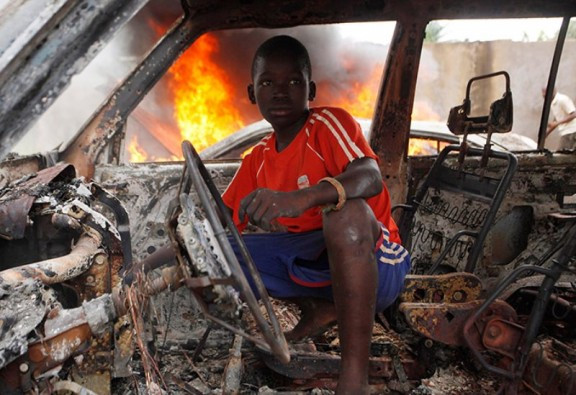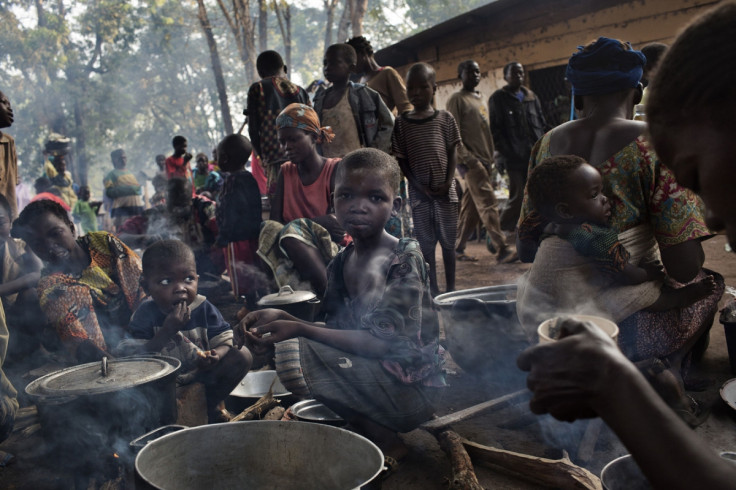Central African Republic: UN Reveals Chadian Citizens and 'Peacekeepers' Committed Atrocities

The UN has revealed that Chadian citizens, including peacekeepers, carried out killings during the conflict in Central African Republic that caused more than 1,000 deaths.
The UN human rights team, which conducted the investigation via 183 interviews, said: "Numerous interviewees identified the ex-Séléka perpetrators as being Chadian nationals".
"Witnesses consistently reported that ex-Séléka wearing the armbands of Chadian FOMAC (peacekeepers) went from house to house searching for anti-Balaka, and shot and killed civilians, including children, women, elderly and disabled civilians," the team said.
The preliminary findings of the investigation suggest the deployment of French troops and the reinforcement of African peacekeepers has deterred further large-scale attacks by ex-Séléka against anti-Balaka and Christian civilians.
However, French peacekeepers' disarming of some Muslim fighters led to the unintended side-effect of enabling their Christian enemies to kill them and their families.
UN human rights spokesman Rupert Colville defended the French peacekeepers.
He said: "They were obviously trying to disarm armed men, which was a good thing. There were anti-balaka elements or even civilians who took advantage of that to attack and kill people who had been disarmed, or their dependants. [...] It wasn't foreseen but I believe the tactics have changed."
Risk of violence still high

Senior UN envoy John Ging has warned against the possibility of further violence as the country is still in a "mega-crisis".
Although the clashes appear to have diminished, killings and human rights violations are still carried out with impunity.
A case of cannibalism has been reported too.
As nearly a million of people have been left uprooted during the conflict, humanitarian needs are essential to guarantee survival.
"The most common conditions among refugees are malaria (39%), acute respiratory infections (20%) and diarrhoeal disease (18%)," NGO International Medical Corps spokesman Josh Harris told IBTimes UK.
"Everything has been lost," Ging said, "homes have been destroyed, facilities, schools and medical centres completely ransacked and destroyed [along with] water wells."
Ging explained that for people outside Bangui the situation is much worse as it is harder to reach them.
"[For some] the options are stark: stay in the jungle and die or come back and possibly be killed," he said.
CAR's interim leader, has warned warring sides to stop looting and tit-for-tat fighting.
Former CAR president Michel Djotodia resigned after he faced pressure to step down, being considered by many unable to halt the bloodshed.
Djotodia, CAR's first Muslim leader, became president after a coup d'état staged by the Muslim Seleka group last March.
Following the overthrowing of the then president Francois Bozize, from CAR's majority Christian population, the country has descended into sectarian violence between Muslim Seleka and Christian Anti Bakala groups.
The UN warned that the CAR conflict could end in genocide and some 2.2 million people are in need of humanitarian assistance.
Amnesty International called for international intervention as crimes against humanity including extrajudicial executions and mutilations of bodies are being committed throughout the country.
France deployed 1,600 troops and other EU countries were urged to do the same.
An emergency session of the UN Human Rights Council is due to meet next Monday to discuss ongoing rights abuses in the country.
© Copyright IBTimes 2025. All rights reserved.






















